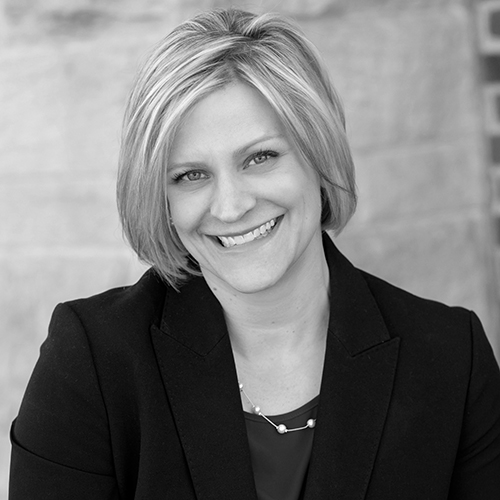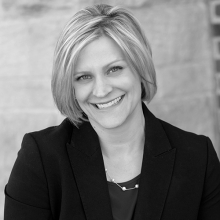Civility and Cooperation in the Time of Coronavirus
 Courts, judges, and lawyers have demonstrated a remarkable ability to adapt to a remote and technology-driven version of our justice system in response to the COVID-19 pandemic. Advancements in technology within the legal system are not new, but this shift is different. Changes from the pandemic have fundamentally altered the way the justice system operates, and these changes call for a renewed commitment to civility and collegiality across the legal profession.
Courts, judges, and lawyers have demonstrated a remarkable ability to adapt to a remote and technology-driven version of our justice system in response to the COVID-19 pandemic. Advancements in technology within the legal system are not new, but this shift is different. Changes from the pandemic have fundamentally altered the way the justice system operates, and these changes call for a renewed commitment to civility and collegiality across the legal profession.
Seismic Changes on All Fronts
Seismic changes to daily court operations have prohibited many traditional methods of communication. Lawyers are now prohibited from face-to-face meetings with opposing counsel, as well as in-person arguments to the judge in a courtroom. The opportunities for regular last-minute, step-outside-of-the-courtroom discussions to stipulate to evidence or negotiate a settlement no longer exist in the same ways—at least for now. These face-to-face dialogues are rooted in accountability and cooperation, and they have been critical to civility and collegiality in our profession.
At the same time, courts continue to issue emergency orders that prioritize essential matters, postpone jury trials, and mandate remote hearings. They call for immediate compliance—in a profession traditionally resistant to change. Court closures, postponement of long-awaited trials, and technology glitches test everyone’s patience. Often added to these rapid changes is the heavy responsibility of household crisis management fused with remote working. The legal profession is under tremendous pressure.
With this tremendous pressure is the obligation for the legal profession to discuss civility, collegiality, and engagement—all for the greater good of the legal profession, which in turn benefits clients.
A New Culture Shift
In 2015, IAALS published a compilation of common themes to improve the legal system based on input and insight from judges, court administrators, and lawyers, captured in Change the Culture, Change the System: Top 10 Shifts Needed to Create the Courts of Tomorrow. In essence, American legal culture—the norms and values we share beyond the formal legal rules and structure—requires a shift in the way we think about the legal system and our role within it. But how can the legal profession effectively shift during a time of crisis such as this?
It begins by getting back to our professional roots
Law must be a collegial and civil profession, first and foremost. The concepts of civility, though, are broad. Former U.S. Supreme Court Justice Sandra Day O’Connor sums it up quite well:
"Unfortunately civility is hard to codify or legislate, but you know it when you see it. It's possible to disagree without being disagreeable."
The ABA Preamble and Scope for Model Rules of Professional Conduct also provide a set of blueprints for the fundamental responsibilities attorneys have to clients, the legal profession, and the legal system as a whole. Within that blueprint are principles that include “maintaining a professional, courteous and civil attitude toward all persons involved in the legal system.”
For now, lawyers cannot meet in person at a bar event or the courthouse to build relationships with each other or hold one another accountable. We can though, in a different way, reestablish or maintain accountability and cooperation moving forward.
Let’s reset. Instead of emailing, pick up the phone and call opposing counsel to have a conversation. Disagreements will happen of course, but this is a great time to remind people to rise above personal attacks, rude behavior, and get to the heart of the issues. Phone calls also eliminate assumptions of perceived tone or a reading-between-the-lines email. Videoconferences are even better. While we cannot meet physically, we can still see each other and work together virtually.
Cooperation is at the heart of Rule 1
We must channel the spirit of Rule 1 of the Rules of Civil Procedure: working toward a just, speedy, and inexpensive determination of every action and proceeding. Most courts are now operating with skeleton crews and handling essential matters first. In the spirit of cooperation, all parties must take responsibility to ensure court procedures are used proportionally and wisely. Now is not the time for blanket objections to all discovery requests or for disclosures that do not immediately get to the actual issues. With court resources stretched beyond capacity, lawyers must eliminate gamesmanship and become as efficient as possible; this is not the time for Rambo lawyering (although it never has been).
Engaged case management from the courts is essential
Judges must be accessible and available to hear and resolve disputes, especially now. Judges should embrace an early understanding of case issues and be prepared to take a hands-on approach. Judges should proactively address disputes by talking with all parties early and as often as necessary. Since the pandemic has cut off all in-person communication, judges should learn the best ways of virtually connecting with all parties and setting early expectations; doing so will reduce ambiguities and help convey new procedures that may be required. Early, strong court engagement will ensure that parties are aware of court expectations and will keep everyone on track to meet the newest guidelines and procedures. Effective communication also lessens confusion on everything from high-level court closures to detailed call-in instructions for virtual court proceedings.
The tone for civility and collegiality is modeled at the top
Judges must convey to parties that incivility and obstreperous conduct will not be tolerated. In doing so, all parties will have new opportunities to solve substantive disputes, practice collegiality, and exercise civility in light of all abrupt changes beyond current emergency rule changes. With judges setting the tone, court staff and lawyers will follow.
Even in these unprecedented times, positive change is possible. And these considerations can lay the foundation for true and lasting legal culture change.



